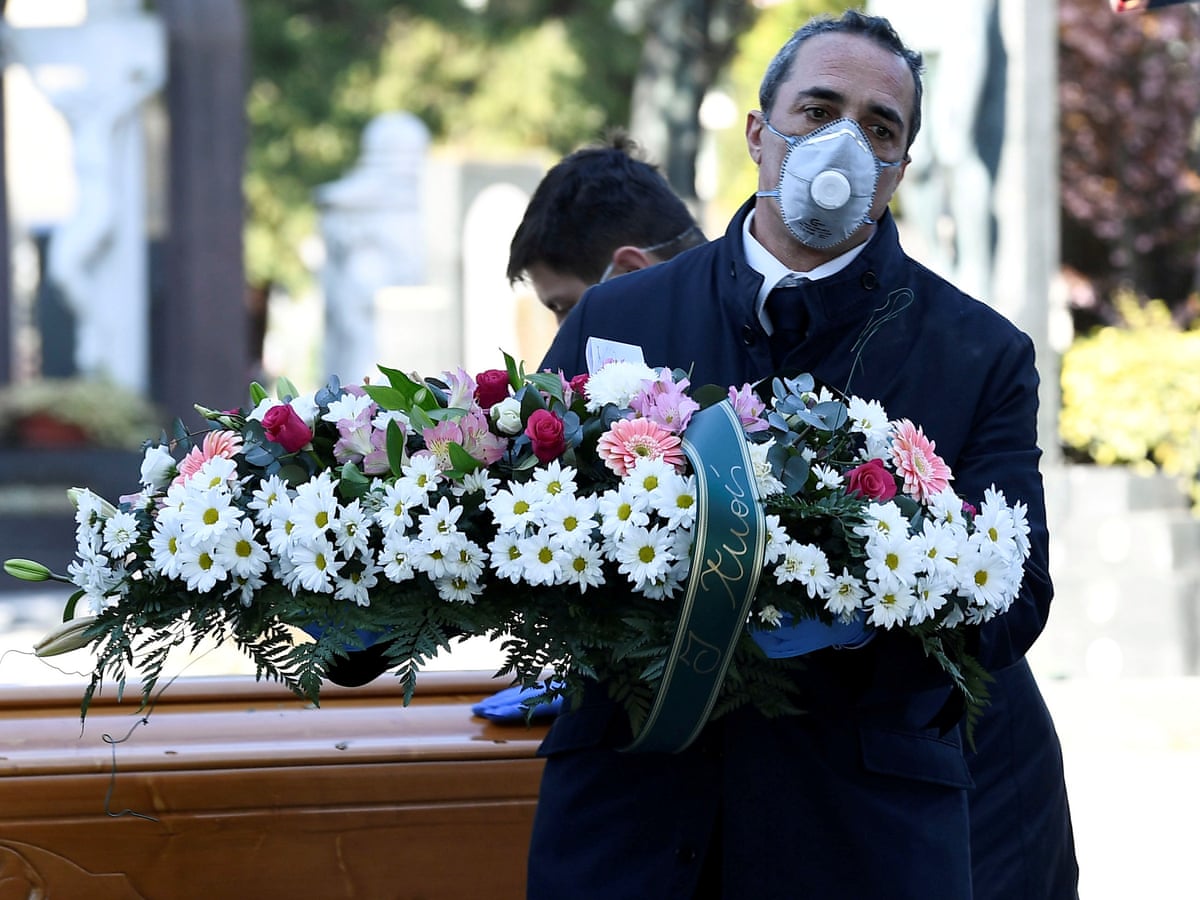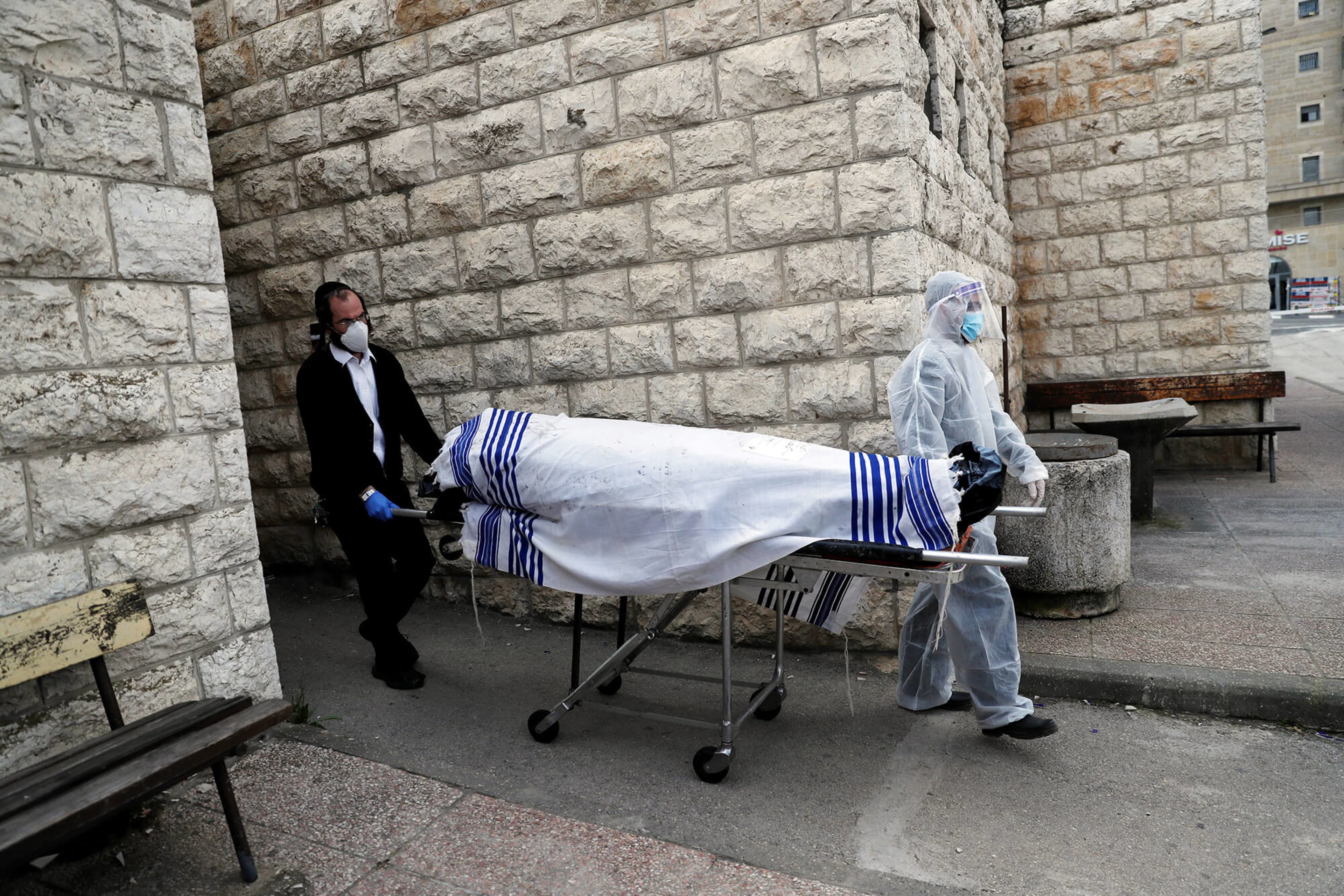The global public health crisis reached a grim milestone this week with the death toll topping one million. This woeful number is fast approaching that of the world's biggest infectious-disease killer of all time – tuberculosis – which claimed 1.5 million lives in 2018.
The spike in deaths from COVID-19 and an insidious surge in other diseases have overwhelmed capacities so that services are unable to properly deal with the deceased, leading to improper and undignified treatment of the dead on many occasions.
"Ensuring the protection, dignity, and respect for the dead and their families in times of COVID-19 goes beyond a public health matter," said Oran Finegen, head of the forensic unit at the International Committee of the Red Cross.
It's not exclusively a public health issue, but an emergency affecting people's lives and mental health in a multitude of ways, the toll of which will last for a long time.
Undignified burial
Lack of burial sites has plagued authorities who must brace the pandemic's coming second and third waves. Residents in Ecuador's largest city of Guayaquil have to leave the bodies of their loved ones in the streets, as funeral homes and cemeteries struggle to keep up with the high influx of bodies. From Brazil to Yemen and the UK, local governments or parishes have been digging extra graves in case of an upsurge in COVID-19 deaths.
In the U.S. state of New York, over 32,000 deaths have resulted in funeral ceremonies being hastily held, and even bodies left in trucks and hallways – sometimes for weeks – waiting for backlogged crematorium schedules.
"The COVID-19 pandemic has therefore forced authorities to review plans and dispositions for ensuring enough burial place, including in cemeteries in large cities, for example, by making available new burial ground from old graveyards," Finegen told CGTN during an interview.

Funeral workers transport the coffin of a coronavirus victim into a cemetery in Bergamo, Italy. /Reuters
Funeral workers transport the coffin of a coronavirus victim into a cemetery in Bergamo, Italy. /Reuters
Hasty goodbye
The stress and heartbreak during the death of a loved one have been amplified during the pandemic, where many have to die alone. In nursing homes, families must look behind the glass at their grandparents or elderly parents, unable to come into contact with them when they need the comfort of hugs and other forms of intimacy the most. Many patients die alone in hospital gowns, leaving their families mourning the fact that their loved ones can't be dressed in their favorite clothes.
A reverend in the UK had to offer communion to several people going to care homes, where they died without additional religious rites.
Despite health and safety considerations required for COVID-19 fatalities, Finegen noted, to do otherwise would expose them to charges of discrimination and violation of the rights to religion and family life.
After death, attendance at funerals has been severely restricted. In certain Christian traditions where a funeral is a celebration of the deceased's life with loved ones, family members must now hold much smaller gatherings where they have to choose which relatives, friends and colleagues can attend. These measures were taken after gatherings at funerals in several U.S. states became "superspreader" events infecting hundreds.
Traditions passed down the generations such as receptions and pallbearers can't be realized, much to the regret of the relatives and funeral home personnel. In the Muslim tradition, a key ritual is family members washing the body of the deceased, but that of course can't happen either for victims of COVID-19.
Finegen's unit has been working with governments and other first responders to develop technical guidelines for safe and dignified management of the dead and in the meantime take into consideration the needs of bereaved families.

Jewish individuals who have passed in the country are traditionally buried in a cloth smock and shroud. But coronavirus victims are being wrapped in plastic. /Reuters
Jewish individuals who have passed in the country are traditionally buried in a cloth smock and shroud. But coronavirus victims are being wrapped in plastic. /Reuters
Funerals simpler and safer
Measures such as social distancing and limited attendance are almost given now at any funeral, even if the deceased did not die from COVID-19. Ceremonies that often take weeks to prepare and for relatives to be notified are now being shortened to days or even hours, as many funeral homes take on more than they can handle.
To bridge this gap, some funeral homes are setting up live-streaming using online services such as One Room Streaming for those who can't attend the service, and even download a copy of the video afterward.
In the UK, though funeral attendance is scarce, there are instances where people line the streets to applaud when the coffin passes by during a cortege.
It's difficult to predict how the pandemic will affect families and communities after it subsides – if it ever does. Loss is deeply personal yet can be meaningful when shared with those who miss the deceased just as much. Funerals are one way of communicating this longing to family and friends, and are a powerful part of the mourning process. Yet restrictions placed on these services mean such an outpouring of grief must be bottled up, which can contribute to anxiety and even trauma in communities long after COVID-19 becomes a distant memory.
(Cover image: A woman holds flowers near a memorial for healthcare workers who died in Saint Petersburg, Russia, during the pandemic. /Reuters)